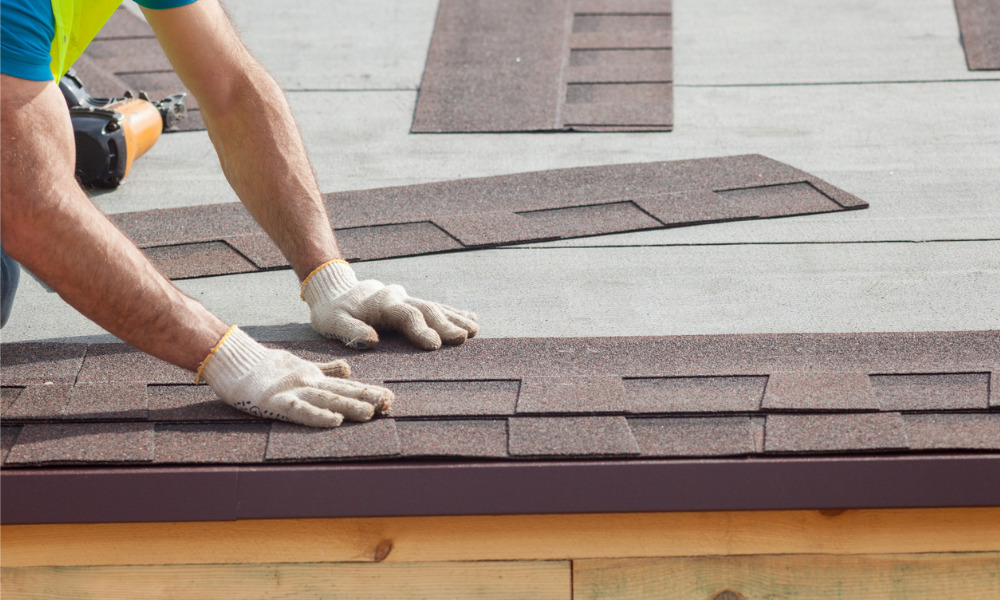
Lower court refused to issue writ of possession, ordered tenant to pay invoice

The Ontario Court of Appeal has allowed both an appeal and a cross-appeal arising out of a landlord’s application for a writ of possession relating to a rental unit and roof repairs for the building..
In 402 Mulock Investments Inc. v. Wheelhouse Coatings Inc., 2022 ONCA 718, the application judge refused to issue the writ of possession that the landlord requested for a rented unit in Newmarket, ON, and ordered the tenant to pay the invoice for roof repairs, amortized over two years.
The application judge decided that the landlord should not deduct the invoiced amount from the tenant’s deposit, the invoice conformed with the lease, the lease did not require the tenant to “top up” the deposit, and the landlord should have returned the deposit.
The landlord appealed the judge’s order declaring that it should have returned the deposit, while the tenant cross-appealed.
The Ontario Court of Appeal allowed the appeal and cross-appeal. Regarding the appeal, the appellate court ruled that the doctrines of res judicata and abuse of process did not bar the application judge from considering the issue of the deposit’s return, given that the preconditions for cause-of-action estoppel and issue estoppel were not present.
The application judge made no errors in declaring that the landlord should have returned the deposit in the absence of a counter-application for declaratory relief, the Court of Appeal said. But the appellate court held that the judge’s declaration that the landlord should have returned the deposit relied on an interpretation of a section of the lease that was wrong and failed to give effect to a clear provision.
The only interpretation that was reasonable, made commercial sense, and gave effect to that provision was the following: If the tenant was in default on Aug. 14, 2020, the landlord was entitled to continue holding the deposit for the rest of the lease’s term and was required to return to the tenant any remaining amount of the deposit upon the lease’s expiry. The tenant was entitled to the return of the deposit on Aug. 14, 2020, only if it was not in default at that time.
Relating to the cross-appeal, the Court of Appeal rejected three of the tenant’s arguments but accepted the fourth. First, the tenant contended that the application judge’s rejection of its interpretation the lease was erroneous. The tenant claimed that its responsibility for costs relating to roof repairs was limited to the cost of repairing the roof’s portion covering its specific unit and tthe repairs for which it was invoiced related to other units.
The appellate court disagreed. A section of the lease covered the landlord’s obligations to maintain, repair, or replace the roof membrane and did not answer the question of who should pay the costs of fulfilling those obligations. The application judgecorrectly decided that another section of the lease addressed the extent to which the tenant should pay such costs as additional rent, the appellate court said.
Second, the tenant argued that the application judge’s interpretation of the lease was erroneous since she failed to consider whether replacing the roof membrane was a structural repair or replacement.
The Court of Appeal found that the application judge did not make this error. The cases that the tenant cited provided little assistance and the question of whether replacing the roof membrane was a structural repair should be determined according to the facts and the lease’s terms, the appellate court said.
Third, the tenant asserted that replacing the roof membrane did not relate to its leased premises, could only relate to another tenant’s premises, and the roof repairs were “done specifically for other tenants” under the lease.
The Court of Appeal, rejecting this argument, said that the landlord’s officer provided evidence that the contract relating to the roof covered the whole roof. The roof repairs were not “done specifically for other tenants,” the appellate court added.
Lastly, the appellate court determined that the application judge failed to address the tenant’s fourth argument that replacing the roof membrane was a capital replacement under the lease and should thus be amortized over its useful life, determined in line with generally accepted accounting principles, as consistently applied.
The Court of Appeal concluded, based on the evidence of the landlord’s officer, that replacing the roof membrane for the entire building was a capital repair or replacement.
In the end, the appellate court struck the first paragraph of the judgment, which declared the tenant responsible for paying the invoice, and the third paragraph, which gave effect to that calculation. This was without prejudice to either party asking for a determination of the applicable amortization period and of the amount of additional payable rent due to the replacement of the roof membrane, the appellate court said.